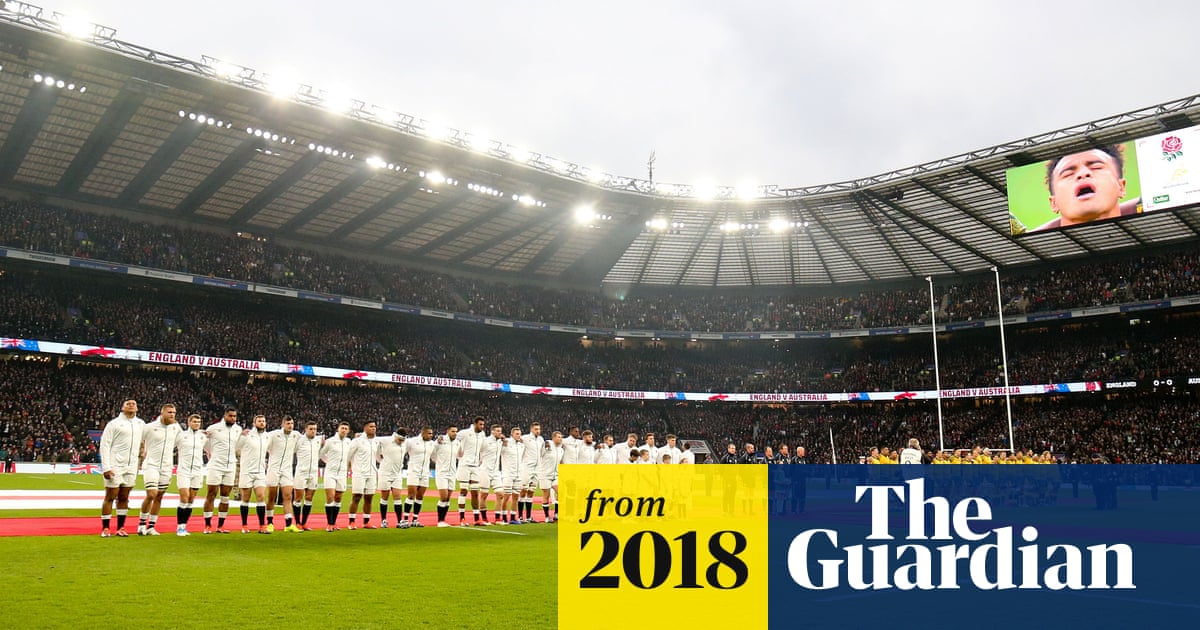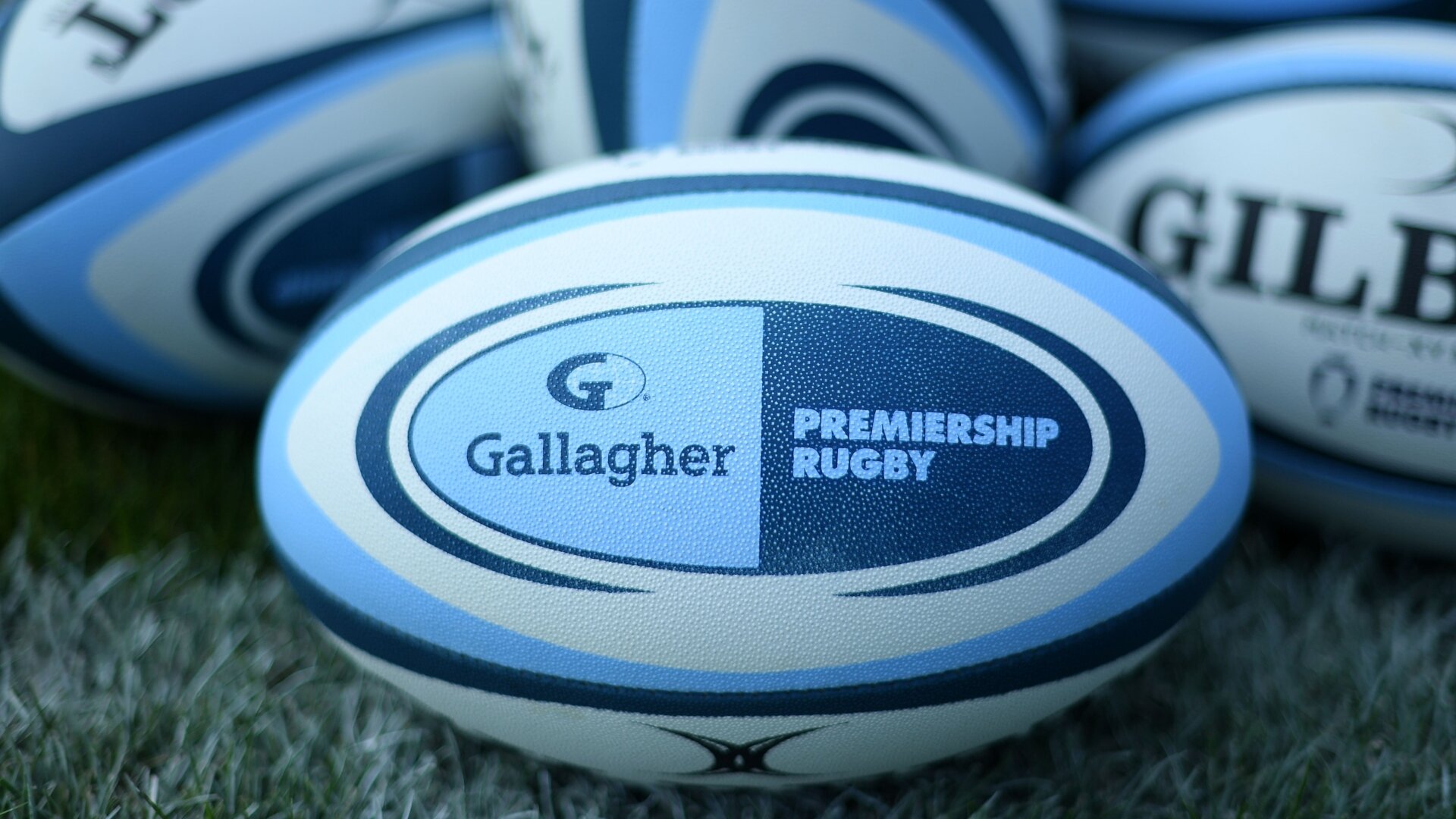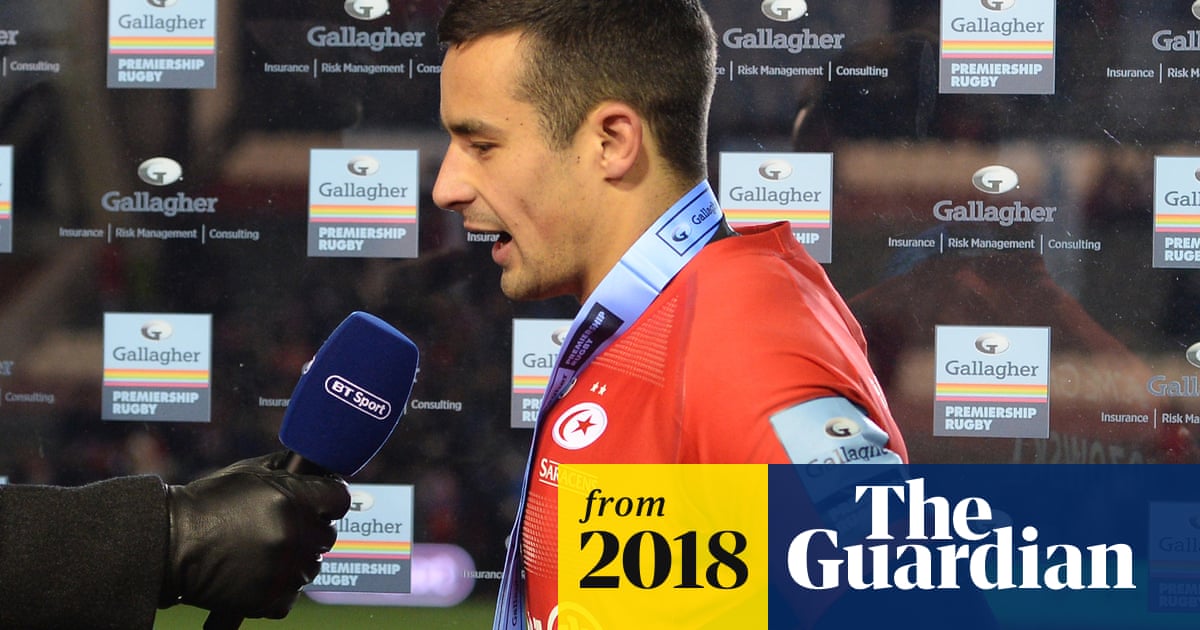Rugby Finances
-
England should just build their own stadium.
-
-
With that announcement, NZRU are looking positively healthy at the moment as the second richest union in rugby.
Wales are starting to come good with the Millennium Stadium practically paid for with their sponsorship deal with Principality. They’ve started to invest a lot more in domestic pathways following the lead of IRFU a few years ago.
Unlike IRFU, WRU own their stadium outright. They’ll start to invest more in their regions, to allow them buy a few foreign players until they right the ship domestically. I can see a lot of upside in Welsh rugby over the next decade.
Scottish RU are more positive too but they still have problems with domestic playing population.
-
@machpants said in Rugby Finances:
FFS richest Union by miles and they still fuck it up. So just like Premierships clubs (outside of my team Exeter) they're living in a financial dream world. But they don't have some stupid rich person to use it for writing off tax with losses.
Yeah but nah. This is more temporary for the RFU.
A gold mine temporarily tightening it's belt due to executive blunders.The premiership clubs are a structural fantasyland. Well, 50 to 75% of them anyway. For whom the RFU are a source of 25 to 50% of their revenues. That's why I find the RFU revenues interesting as it trickles down to our annual exodus threads.
However the RFU and Premiership Rugby professional game agreement has 6 more years to run until 2024, so that source is pretty safe for the medium term. It will effect the league's valuation though, at a time when they are looking for private equity investment, to have a public announcement by the RFU that they think they've overpaid.
-
@derm-mccrum said in Rugby Finances:
With that announcement, NZRU are looking positively healthy at the moment as the second richest union in rugby.
Wales are starting to come good with the Millennium Stadium practically paid for with their sponsorship deal with Principality. They’ve started to invest a lot more in domestic pathways following the lead of IRFU a few years ago.
Unlike IRFU, WRU own their stadium outright. They’ll start to invest more in their regions, to allow them buy a few foreign players until they right the ship domestically. I can see a lot of upside in Welsh rugby over the next decade.
Scottish RU are more positive too but they still have problems with domestic playing population.
Yes, the "build a bigger stadium" theory is going to start paying off now for the WRU.
It's taken 20 years, and it nearly bankrupted them 5 years into the journey. The whole reason 'out of window' revenue sharing tests started was because the WRU were on the verge of bankruptcy due to their stadium debt.
-
England players’ £25,000 match fees may be cut to reduce RFU spending
Gerard Meagher
England players’ £25,000 match fees may take a hit in the future, according to the Rugby Football Union’s departing chief executive, Steve Brown, after the governing body announced a loss of £30.9m on Monday.
Brown also admitted that an overspend on the England squad, largely as a result of a high turnover of players rather than staff, had contributed to the union’s financial plight. The RFU also expressed a degree of regret over the high cost of its £220m deal with Premiership clubs which guarantees Eddie Jones access to his players in the first place.
“We have an affordable position with the [payment] of England players and we need to make sure that is sustainable for the future,” said Brown. “That’s key, we need to make sure there’s a sustainable model that keeps the players safe and fit and well, well-paid for what they do but also operating a commercially sound and stable business. The market determines that to a certain extent, but the next phase we’re going through, with some of the wider challenges affecting us, will start to level that [out] a bit.”
The eight-year Professional Game Agreement (PGA), signed in 2016, guarantees Jones access to his squad but the RFU chairman, Andy Cosslett, on Monday acknowledged the role it has played in leading to the union’s loss, published in its annual accounts up to June 2018.
“We have to accept that over recent years we signed some long-term agreements with the professional game which, while strategically important, now appear costly against updated revenue forecasts,” Cosslett said. “This will restrict our discretionary investment capacity going forward.”
The accounts also show that the former chief executive, Ian Ritchie, who brokered the PGA, was paid £238,000 for his final two months in the job last year, despite the union being forced to make 54 redundancies. The RFU says the payment to Ritchie, who left the union in August 2017 and is now chairman of Premiership Rugby, was salary owed as well as additional amount in lieu of a full notice period as a contractual obligation.
Of the job losses – 62 roles were made redundant with 54 employees leaving the union – Cosslett added: “We’ve had to throttle back and sadly that involves some redundancies and restructuring. It’s important we have a stable outlook which reflects our updated revenue forecasts.”
In September Ritchie was succeeded by Brown, who announced this month he is also leaving his £400,000-a-year position after just 14 months amid accusations from RFU grandees of mismanaging the union’s finances, but the departing chief executive has stated England’s budget for the World Cup is ringfenced.
“[Overspending] did happen but we have got control of it and everyone is clear about that, from Eddie and his team downwards,” Brown added. “Sometimes through injury or trying different players out we need to select more players in a series. It’s just the way that the model works. It can work for us and sometimes it works against us financially.”
The overspend of around £40m on Twickenham’s revamped East Stand has also been identified as a contributing factor to union’s harsher economic outlook but while its borrowing limit has risen to £100m, the RFU insists it is on sound financial footing, stating that a one-off cash injection means it has effectively broken even.
The Twickenham Experience Limited hospitality business has been sold to Compass PLC for £31.6m, thereby boosting the RFU’s reserve fund, but Brown denied the RFU is “moving money around” to hide the £30.9m deficit. The RFU is also anticipating a profit for 2018-19.
The accounts also show that the RFU invested £107.7m of its revenue back into the sport, an increase of 8%, but its annual income fell £12.5m, largely due to hosting fewer Tests at Twickenham as well as England’s fifth-place finish in this year’s Six Nations.
Cosslett did confirm, however, that England’s upturn in form this autumn means Jones’s job is safe through to the World Cup. “The performance in the autumn was extremely good, and that discussion – if it was there recently – has certainly evaporated now,” he said. “The World Cup is a very significant focus for us and our priority one right now. It’s absolutely clear where the costs are leading up to the World Cup and we will be making sure that is safeguarded going into the World Cup because we want to win it.”
-
@machpants said in Rugby Finances:
Compass took over military catering during my time and they were fucking abysmal. Probably made a good profit off the shit they did in the mess.
Why would the military outsource catering?
-
@nepia said in Rugby Finances:
@machpants said in Rugby Finances:
Compass took over military catering during my time and they were fucking abysmal. Probably made a good profit off the shit they did in the mess.
Why would the military outsource catering?
Save money. Australian Defence Force did the same. All of a sudden there was a limit on the amount of steak I could eat for dinner. No loading up on other meat either.
-
@antipodean said in Rugby Finances:
@nepia said in Rugby Finances:
@machpants said in Rugby Finances:
Compass took over military catering during my time and they were fucking abysmal. Probably made a good profit off the shit they did in the mess.
Why would the military outsource catering?
Save money. Australian Defence Force did the same. All of a sudden there was a limit on the amount of steak I could eat for dinner. No loading up on other meat either.
Seems weird from a logistical point of view. I thought they'd still be training up cooks etc. I have a couple of cousins who went into the army to kick start their chef careers back in the 90s and now work in poxy places in London/New York.
-
Then the serving caterers (insert any role that can be civilianised at home, engineers, police, medical, etc) get more and more deployments, ruining their family lives, so they quit. Then you have to train up replacements, costing way more money than you saved with civilian contracting, whilst also having reduced quality of service, and everyone's job satisfaction. Thanks fucking bean counters
-
LOL RFU report made them realise things weren't so rosy after all. This'll be a long term disaster for PR (it's ALL about the money ow, not just mostly) and short term for SH (more money for our players).When it all goes tits up in 5 years time, who knows how it will pan out.
-
If they're only selling a minority stake in the region of 30% as mentioned in article above.
And they're getting crica £240m as Guardian article suggests.
Then that's probably a pretty good deal. Would have to look into it.
With the previous offer, in one of the other threads I reckoned that the £275m offer for 50% stake would only delay the day of reckoning for the lower half of the league by a few years until back to square 1.
-
This is a post I made in the NH thread in September.
https://www.forum.thesilverfern.com/topic/1013/nh-club-rugby/996Looking at the latest premiership finances.
-
Back on the other thread I did an examination of some of the clubs positions based on a £17m upfront payment for 50% of PRL. I have done the same, keeping it at £17m payment but for 33% sale of PRL and a 33% reduction in central income.
Here is a crude examination of a cross-section of the clubs. Assuming no major changes in income (including non-rugby income) or reduction in wage costs,
Central Income In the next 5 years.
• RFU central payments unchanged
• Naming rights sponsorship unchanged
• TV rights unchanged for 3 years - then re-issueNewcastle. Borderline viable venture where current central funding makes up 50% of their turnover.
Borrowings/investment by owner: Loans owing £20m.
Expenses:
• Interest payable £332,529
• Wages £7.9m (10th highest, 81% of turnover)Turnover £9.7m
• Income from Premier Rugby, RFU and RFL £5.2m
• Match income £1.7m
• Commercial £2.7mCurrent Loss before tax £3m
£17m payment means:
- £20m debt can be reduced to £3m. Reducing their interest costs from 0.3m to 0.05m.
- Currently making a loss of £3m a year. After reducing their central income by £1.7m (from 5.2 to 3.4m) but also reducing their interest costs from 0.3m to 0.05 , this means they are losing £4.65 m per year.
So in 3.7 years time, Newcastle are back to square one and will have a £20m debt again. All this does is see them through to the next TV and sponsorship rights deals.
Gloucester: Reasonably well run MOTR club who own their own ground. Central funding represents 31% of their turnover.
Borrowings/investment by owner: Bank loan £4.5m
Costs:
• Interest 0.08m
• Wages; 10.7mTurnover £16m
• (Central income £5m)Loss before tax £1.2m
Don't have much debt - £4.5mGet a payment of £17m
- So, now have cash reserves of £12.5m
- Were losing £1.2m a year, will now lose £2.8m a year (current 1.2 loss + 1.7 reduced central funding – 0.01 reduced interest)
So in 3 years time when TV rights are up. Gloucester have wiped their debts, but lost £8.4m in the mean time. So are now £8.6m in the black after 3 years (out of that £17m) but still losing money hand over fist and those cash reserve would last just 3 more years before their borrowing again for operational costs.
Exeter. Well run club.
Borrowings/investment by owner: Debentures £8m; bank loan £5m.Costs:
• Interest 0.8m
• Wages; £9.6m (9th highest, 56% of turnover)Turnover £17m (6th highest in Premiership)
Profit before tax £1.1m
If receive payment of £17m.- Can pay off loan of £13m entirely, and have £4m cash reserves.
- Were making profit of £1.1m a year, will now make a profit of £0.2m a year (current 1.1m profit - 1.7 reduced central funding + 0.8 reduced interest).
So in 3 years time when TV rights are up. Exeter have wiped their debts, have £4m cash reserves, still profitable (just), but reduced profit to only £0.2m a year. However, as it is a member owned club, can assume the £4m cash reserve would be re-invested in the club in a way to increase future profits. Rather than taken out by the shareholders/owner.
Saracens: Highly leveraged play thing.
Borrowings/investment by owner: Owed to parent co. and shareholders £47mCosts:
• Interest 0.02m
• Wages: £11.4m (4th highest, 64% of turnover)
Turnover £17.8m (5th highest in Premiership)
Loss before tax £2.8mAgain, working on a payment of £17m
- Can reduce loan from £47m to £30m
- Were making a loss of £2.8m , this increases to £4.5m
So in 3 years time when TV rights are up. Saracens have reduced their debts by only £4.5m to £43.5m.
Their owner, to whom they pay negligible interest on their $43m debt will be aged 73 …..
Wasps: Highly leveraged gamble.
Borrowings/investment by owner: Inc £12.9m to owner £48.9mCosts:
• Interest 2.3m
• Wages: £17m (Highest, 51% of turnover)Turnover £33.4m (Highest in Premiership, includes Ricoh Arena turnover)
Loss before tax £3.7m
Again, working on a payment of £17m
- Can reduce loan from £49m to £32m
- Were making a loss of £3.7m , this increases to £5.4m
So in 3 years time when TV rights are up. Wasps will have debt of £48.2m. Not much change.
Wasps are a huge speculative play on the Ricoh Arena and the hotel they have built. Maybe a £17m injection of cash now will be enough to get by until the business is sustainable.
-
The reports of how much the CVC stake would be seems to vary - with some saying more than £200m, and others saying £240m to make it an even £20m per club.
Except, if I recall correctly, there are 13 clubs who own stakes in the PRL - London Irish being the odd one out this season - so they would get a shareout from the investment - making the range from £15m - £18m per club.
Lastly, the central payments from RFU were based on performance for the second half of the agreement (2020-2024) so it is likely that the amount from RFU would decrease given their annual report figures being down - the RFU flagged this some months ago.
"Steve Brown has also spoken about how England's clubs could be set to suffer a decline in revenue from their financial deal with the RFU if Twickenham's forecast of a possible downturn in profit proves accurate.
He revealed the Professional Game Agreement (PGA) that underpins England's access to players from the Gallagher Premiership promises a fixed payment of £112million for the first four years only.
For 2020-24 of the eight-year deal, the amount received by clubs is linked to financial performance at the RFU, with Brown overseeing a redundancy process that is expected to see 62 people lose their job by the end of August to help offset rising fixed costs against an outlook of plateauing or reduced profit.
"The good thing about the PGA which we put in as a safety net was that the income part of it becomes flexible after the first four years, move with our finances," Brown said.
"If our income goes down, so does the agreement payment. So the PGA doesn't cause us a problem forever, it's just within the next two years.
"The clubs are already aware of this. That has always been the case. I guess from the clubs' point of view they have looked at securing their revenues for four years. They are fully informed."


